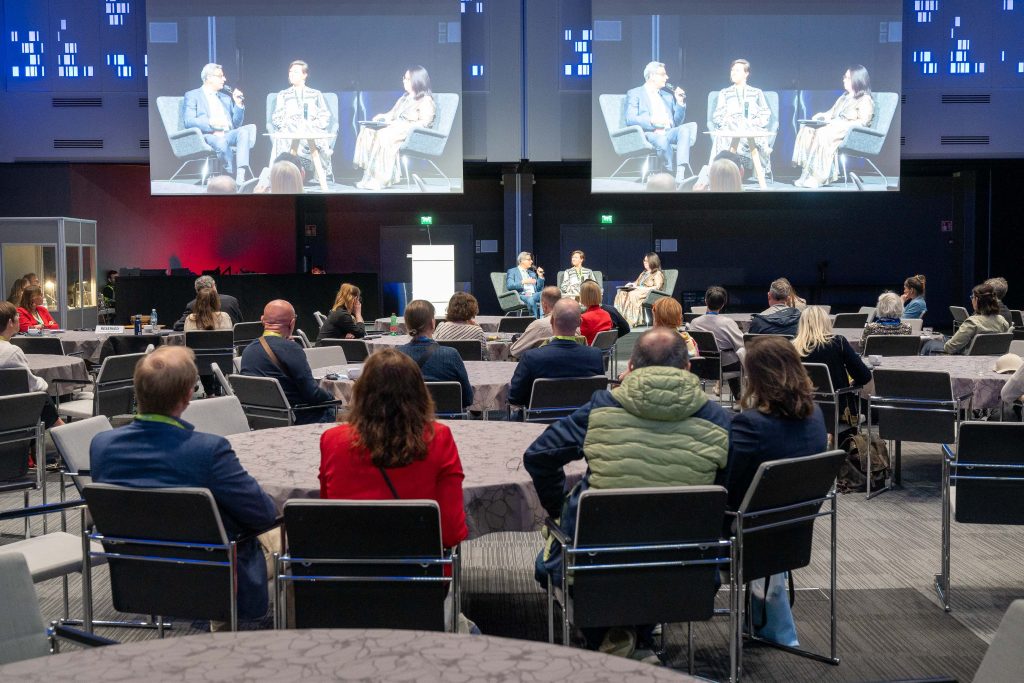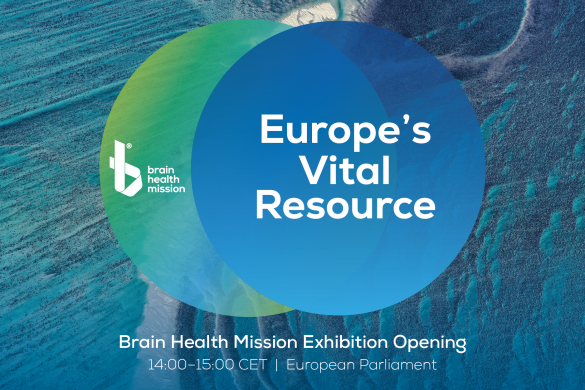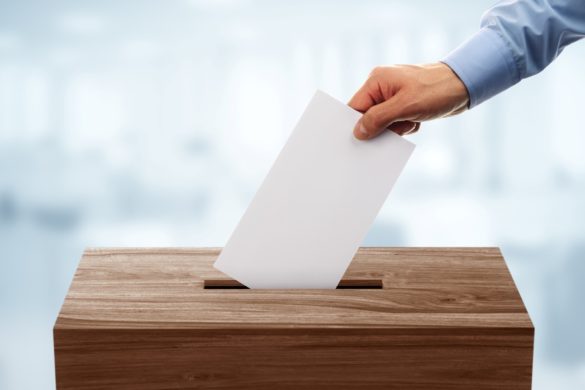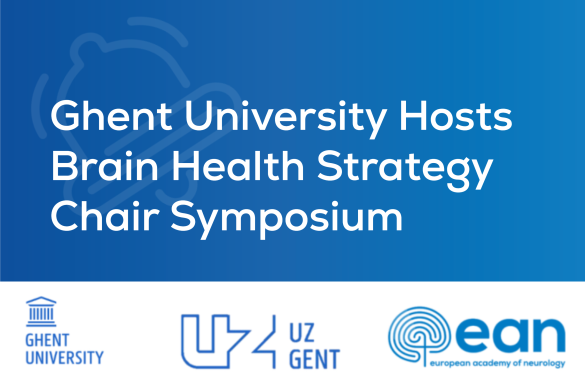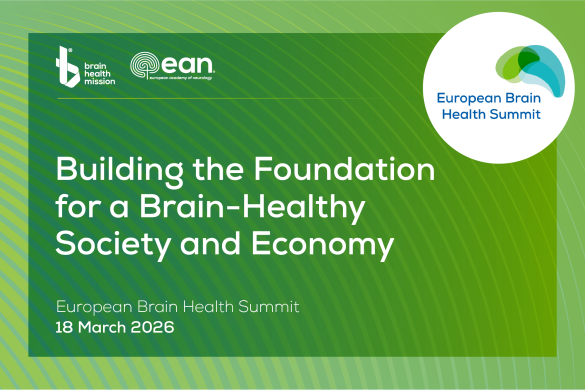On 23 June 2025, the European Academy of Neurology (EAN) and the Brain Health Mission welcomed a diverse audience of citizens, patients, carers, educators, professionals and advocates to the Public Brain Health Day in Helsinki. Moderated by Reetta Kälviäinen, the event aimed to raise awareness, share practical tools and foster collaboration to promote better brain health for everyone, at every stage of life. Hosted during the 11th Congress of the European Academy of Neurology, the event combined scientific knowledge, public engagement, and practical sessions, to exchange ideas and unite voices, explore and advance the understanding of brain health in an inclusive environment.
Headache & migraine: dispelling myths and raising awareness
Kicking off the programme, Antoinette Maassen van den Brink, President of the European Headache Federation, and Patrick Little, President of the European Migraine and Headache Alliance, challenged common misconceptions around migraine. “Migraine isn’t just a headache,” stressed Maassen van den Brink, noting how deeply it can impact daily life – particularly for women, where hormonal factors are both under-researched and under-treated. Little underlined the massive burden migraine places not only on individuals but also on societies as a whole. He noted stark disparities in care and a lack of training among general practitioners, who often receive only six hours of education on headache disorders throughout their medical training. Both speakers advocated for better education, early intervention and a strong role for people with lived experience in driving change. The audience interacted with panellists on the need to raise awareness about the entire spectrum of migraine episodes and to recognise the influence of comorbidities such as anxiety.
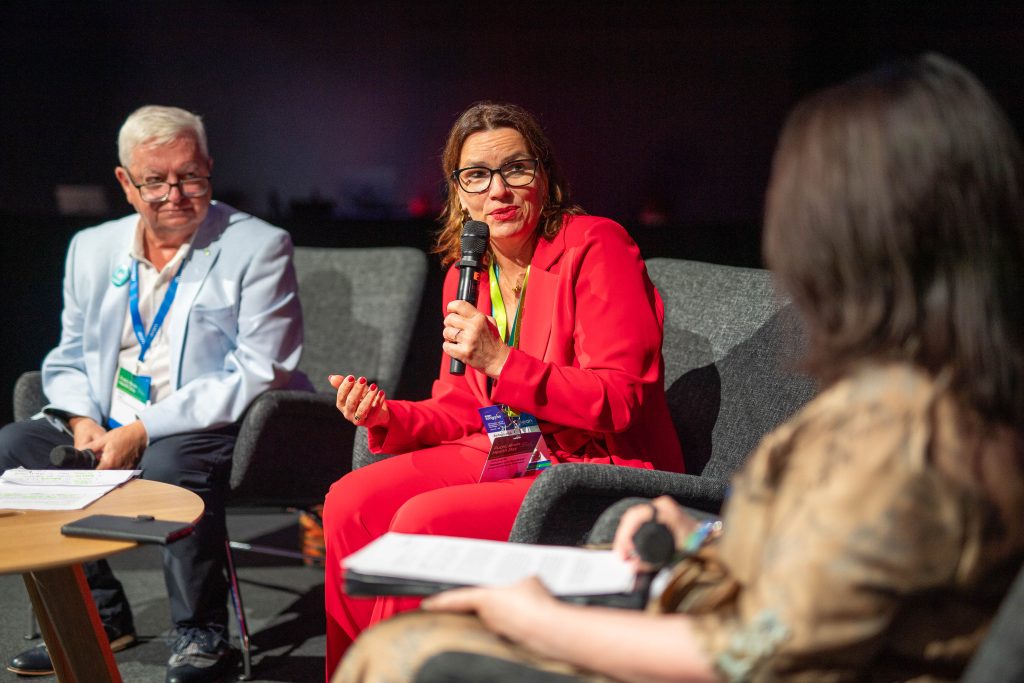
Cognitive impairment & dementia: the urgent need for improved prevention and a shift in perceptions
Eino Solje of the University of Eastern Finland and Katariina Suomu, Executive Director of the Alzheimer Society of Finland, then explored how memory disorders emerge, are diagnosed and can be better managed. Solje emphasised the importance of early detection, years before symptoms fully manifest, and the need to normalise proactive brain health checks. Suomu spoke about the emotional toll of Alzheimer’s on patients and caregivers and how receiving the right information at the right time can make a life-changing difference. Both speakers stressed that nearly 40% of dementia risk could be mitigated by lifestyle interventions, while reminding that public health efforts lag behind compared to other disease areas. Panellists engaged with the audience on the need for better media representation of dementia, highlighting the stigma and fear provoked by misleading or age-biased imagery.
Music therapy & brain health: the healing power of sound
Anne Takamäki, Chair of the Finnish Society for Music Therapy, led an engaging session demonstrating how music can be used as an evidence-based rehabilitation method. From managing trauma to supporting communication and mood regulation, music therapy was shown to benefit people of all ages and neurological conditions. Participants clapped, tapped and even drummed on tables as they experienced firsthand the influence of rhythm and melody in promoting well-being. Music therapy, accessible even without musical skill, combines movement, expression and joy – demonstrating how simple tools can improve brain health in everyday life.
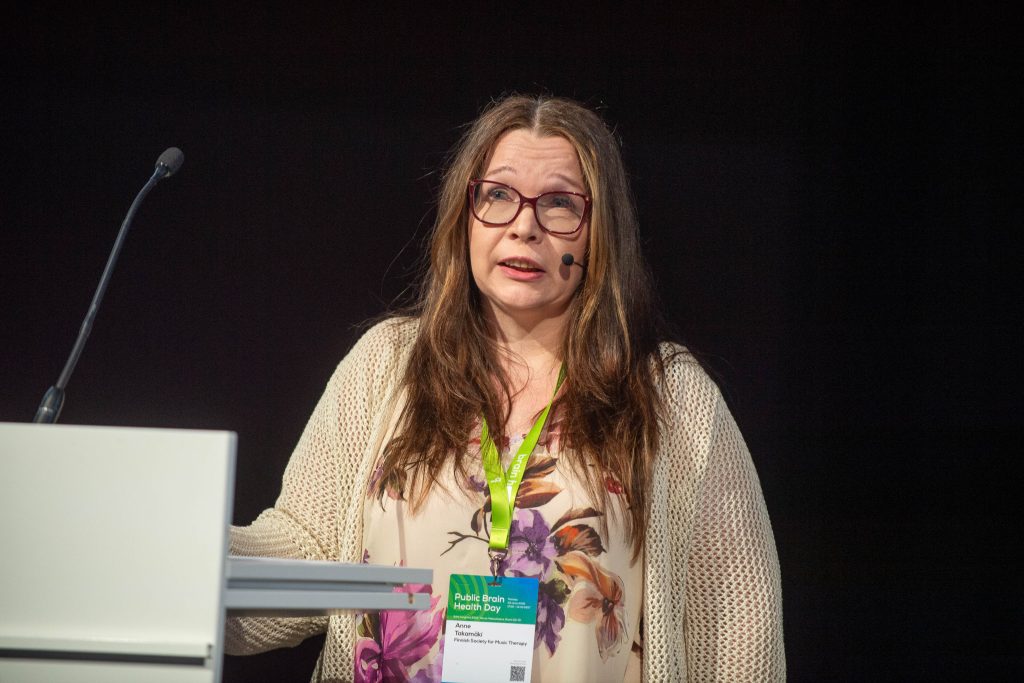
Parkinson’s disease & movement disorders: personalised care and prevention
In a session on Parkinson’s disease (PD), EAN President-Elect Kailash Bhatia and Amelia Hursey of Parkinson’s Europe discussed known and emerging risk factors, from environmental exposure to gut-brain axis dynamics. While ageing remains the most recognised risk, Bhatia noted that genetic predisposition and changes in the microbiome are being investigated. He highlighted the SEANS model – Sleep well, Exercise, Avoid injury, Nutrition, and Social activity – as a framework for prevention. Hursey also stressed the importance of multidisciplinary care teams to support the quality of life of people with PD. The audience raised the importance of early diagnostics, including REM sleep behaviour as a prodromal symptom and emerging research on skin-based biomarkers. The pandemic’s impact – both its isolating effects and the growth of digital health – was also discussed.
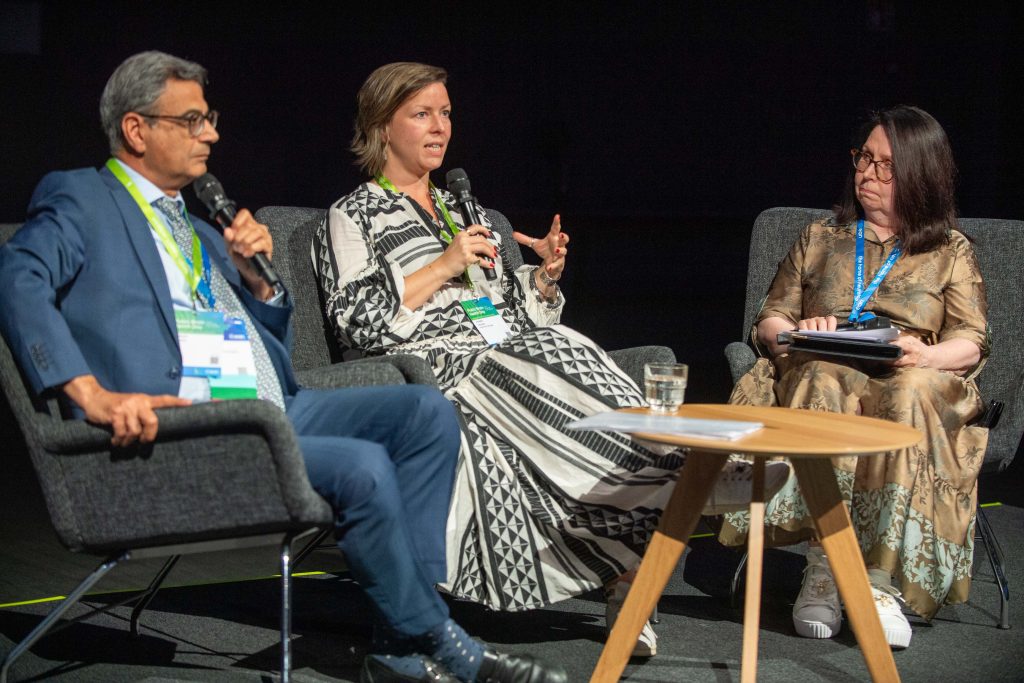
The influence of autogenic training on brain health: relaxation for brain resilience
In a calming and engaging session, Prof. Max Josef Hilz, Past-Chair of the EAN Scientific Panel Autonomic Nervous System Disorders introduced the audience to autogenic training – a relaxation technique using self-suggestion to restore balance between the sympathetic and parasympathetic nervous systems. Participants joined in a guided session, in which they listened to phrases intended to evoke warmth, calmness and focus. Hilz explained how such methods could counteract chronic stress, a major contributor to neurological and systemic health issues. With rising stress-related disorders globally, practical tools like these are more relevant than ever.
A platform for connection and commitment
Throughout the evening, attendees engaged with experts, EAN representatives and patient organisations in the networking area, exchanging ideas and learning about ongoing projects. The closing reception provided an opportunity for participants to reflect and recommit to advancing brain health for all. The Public Brain Health Day demonstrated the power of accessible science, lived experience and open dialogue. As Helsinki continues its role as the EU Capital of Brain Health in 2025, the success of this event will serve as a blueprint for other countries to follow, ensuring that brain health remains at the forefront of public and political agendas.
